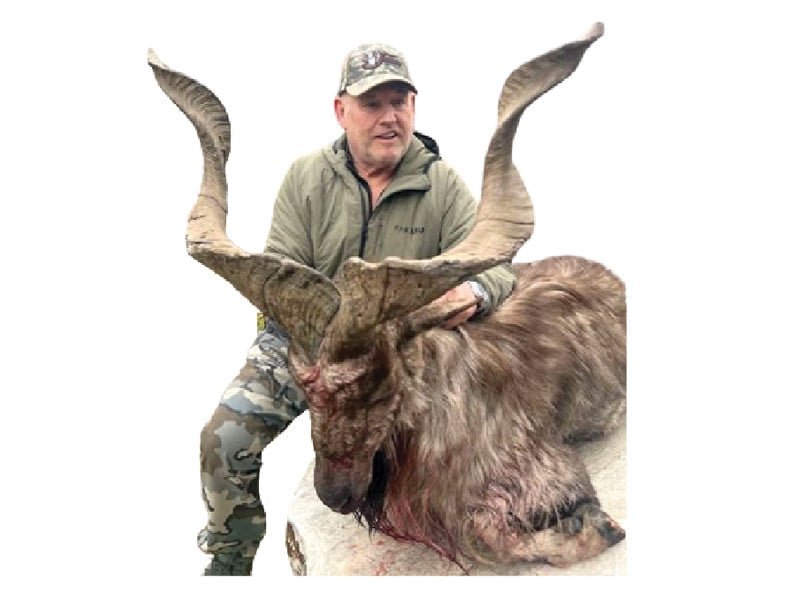Unprecedented Bid for National Symbol
In a groundbreaking event, an American hunter set a new record in Pakistan by bidding over Rs75 million for the opportunity to hunt the Markhor, the nation’s cherished and iconic national animal. This record-breaking bid is the highest in the country’s history, underscoring the global appeal of sustainable wildlife programs.
A Trophy Worth Celebrating
Divisional Forest Officer Farooq Nabi confirmed that the American hunter secured the season’s first hunting permit with a bid exceeding Rs7 million. The Markhor taken during the hunt featured horns over 49 inches long, making it an extraordinary trophy for the hunter and a significant achievement for conservation programs.
The October 2024 auction also saw two permits sell for $271,000, highlighting the growing global interest in Pakistan’s regulated hunting framework, which channels funds into wildlife preservation efforts.
The Markhor’s Conservation Success Story
Once on the brink of extinction, the Markhor’s population has been steadily recovering in Pakistan thanks to community-driven conservation initiatives. Over the past decade, proactive measures have increased their numbers to between 3,500 and 5,000 individuals, a significant achievement compared to their global population of fewer than 6,000 mature animals.
Ambassador Munir Akram, representing Pakistan at the UN, highlighted the Markhor’s importance during a July 2024 side event on wildlife protection. “This species symbolizes not just national pride but also a chance to promote sustainable tourism and economic growth,” he noted.
A Call for Global Cooperation
Pakistan has urged the international community to adopt similar conservation frameworks. Ambassador Akram emphasized the value of empowering local communities, strengthening governance, and sustainably managing natural resources to ensure wildlife thrives alongside human development.
The record-breaking Markhor hunt showcases how regulated hunting can align with conservation goals, offering a sustainable model for preserving endangered species.










